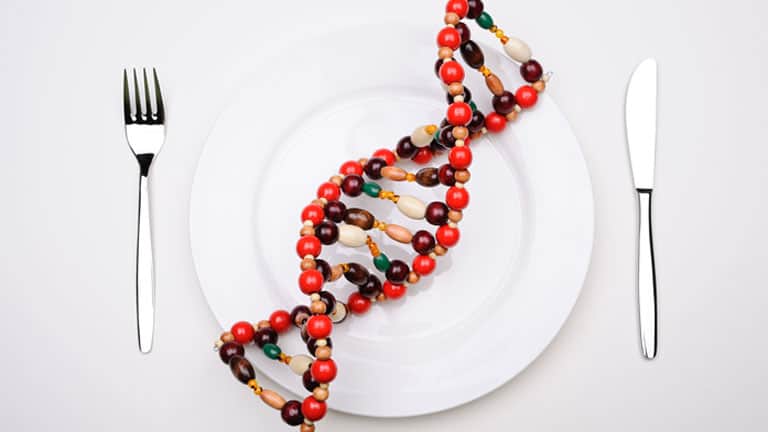 Personalized nutrition is getting a lot of attention these days. Companies will analyze your DNA and tell you what foods and supplements you should and shouldn’t eat based on your genetic profile. But a huge study throws cold water on the idea of matching your diet to your genetics. Participants with a “low-carb genotype” (who would hypothetically do better on a low-carb diet) were no more successful on a low-carb diet than on a low-fat diet. The same was true for those with a “low-fat genotype.”
Personalized nutrition is getting a lot of attention these days. Companies will analyze your DNA and tell you what foods and supplements you should and shouldn’t eat based on your genetic profile. But a huge study throws cold water on the idea of matching your diet to your genetics. Participants with a “low-carb genotype” (who would hypothetically do better on a low-carb diet) were no more successful on a low-carb diet than on a low-fat diet. The same was true for those with a “low-fat genotype.”
The study also found that, overall, low-carb diets are no better or worse than low-fat diets at producing weight loss. Those are the two headlines from this study. (Examine.com has produced an excellent detailed analysis of the study, if you want to take a deeper dive.)
But there is so much more here that warrants mentioning. Here’s what really got my attention:
None of the study participants were asked to count or limit their calories. Instead, both groups were told to limit their intake of added sugars, refined flour and junk food, and to eat lots of vegetables and whole foods. And that was enough to produce weight loss. In other words, when you pay attention to the quality of your food choices, the calories often take care of themselves. And when you’re eating a healthy, whole foods diet, low carb is no more effective than low fat.
The other thing that’s notable about this study is that the participants received intensive coaching throughout the year. They were taught how to choose foods that kept them satisfied for fewer calories. They were encouraged to avoid distracted eating and eat more mindfully. Making sustainable changes was a bigger priority than achieving fast weight loss. (All of this will sound very familiar to participants of the Weighless program, our 12-month coaching program for sustainable weight loss.)
At the end of the study, the most successful participants reported having changed their relationship to food. And that’s ultimately what’s required for permanent weight loss. Not calorie or fat or carb counting.
More info in these episodes of Nutrition Diva.




